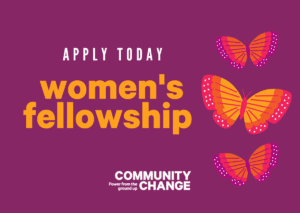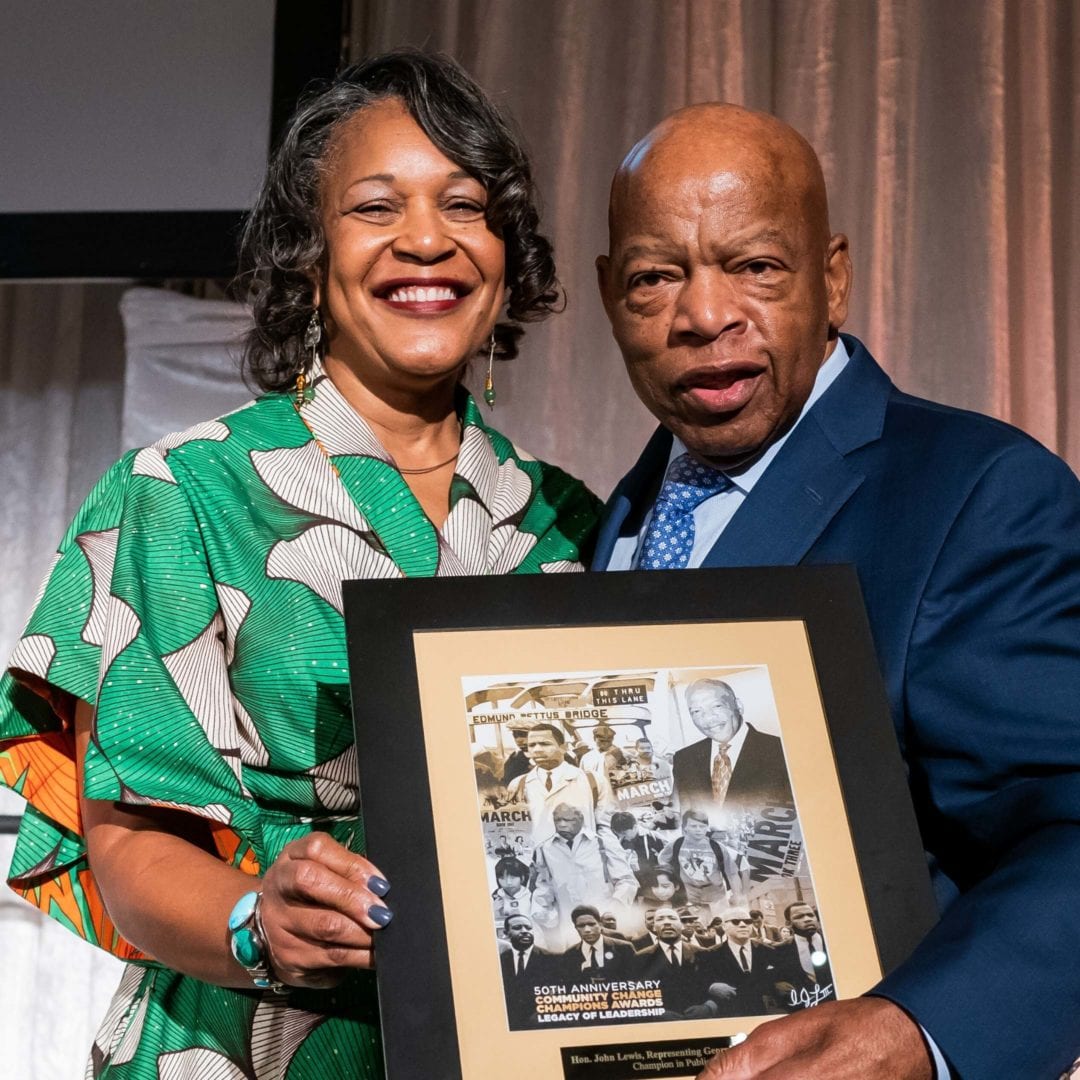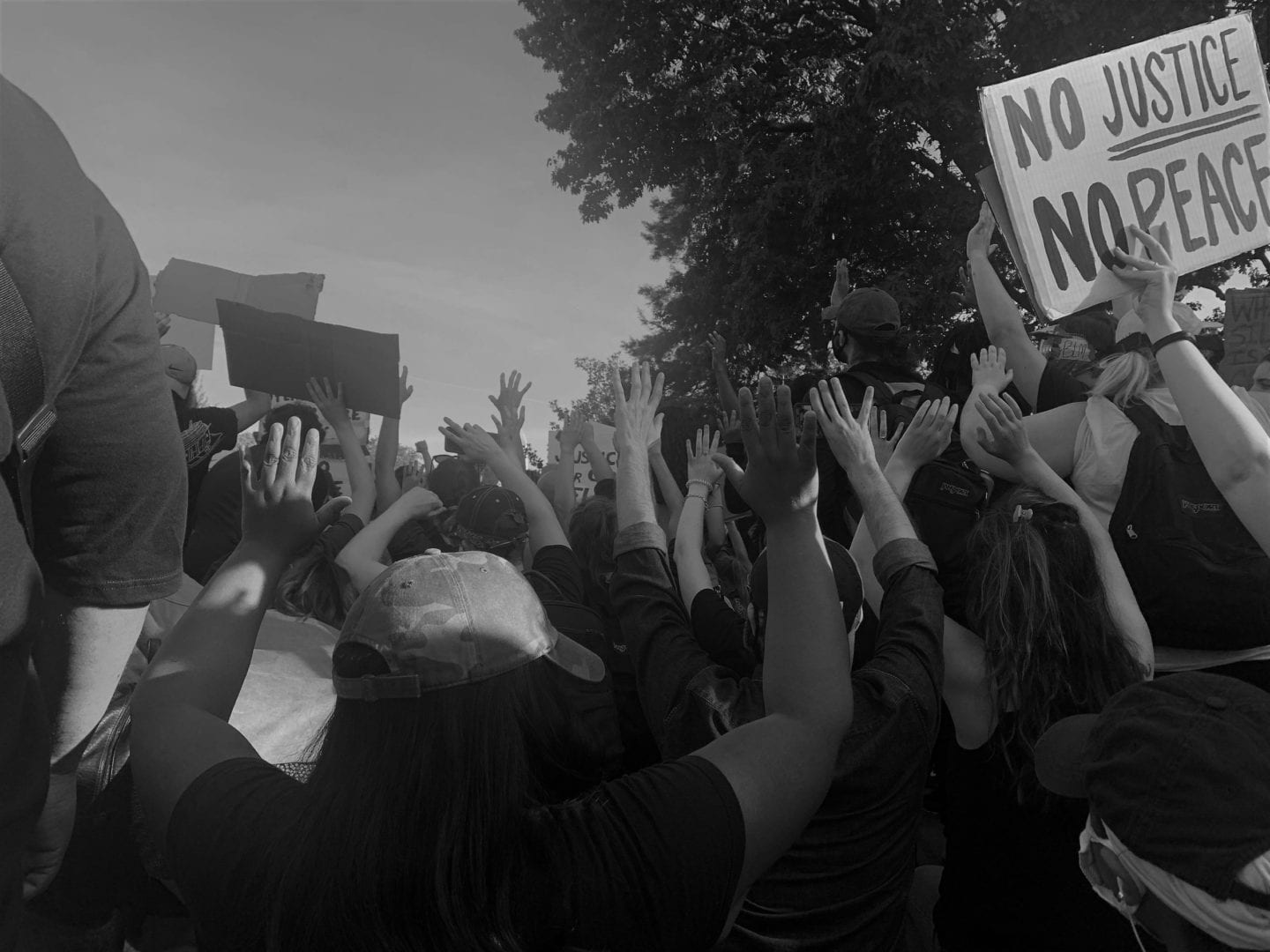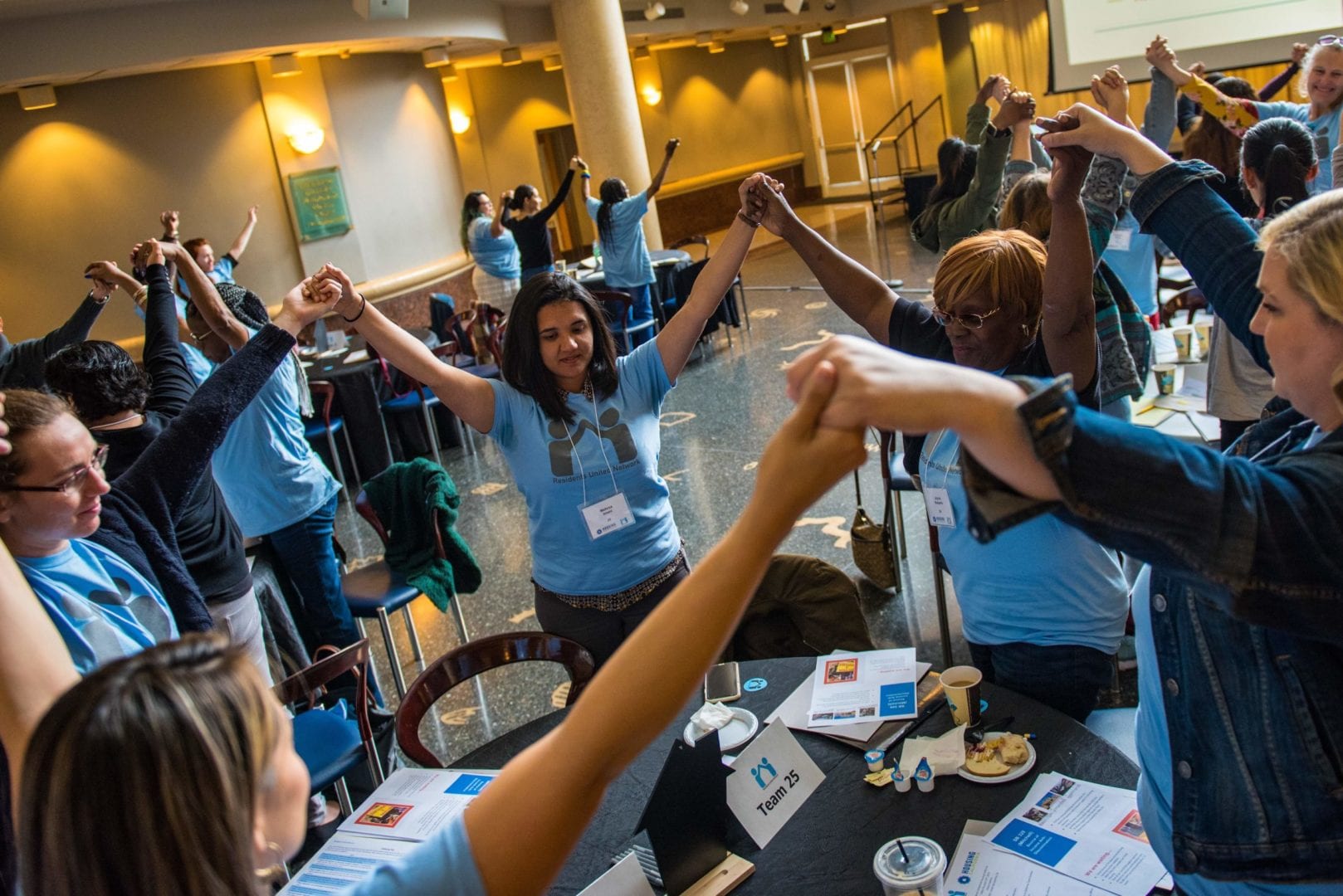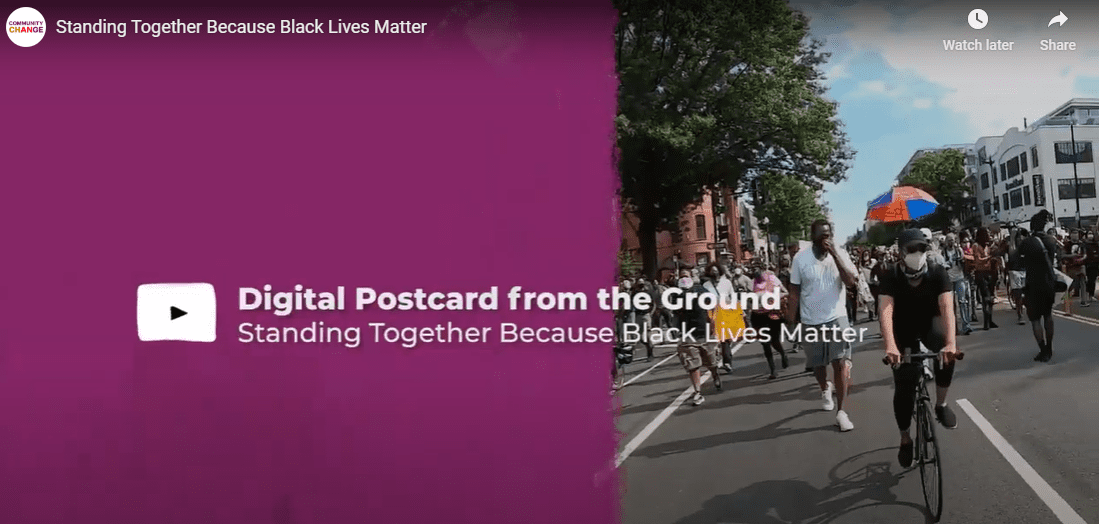AN OPENING THOUGHT PIECE BY LORELLA PRAELI
We are the power within us. All year, I’ve come back to Abuela Margarita’s words — soy el poder dentro de mí — which sum up our recent Annual Report. I hear them in the cadence of marching feet, rising up to defend Black lives. They echo through victories like the Supreme Court’s ruling on DACA and whisper to me in the celebration of the Americans with Disabilities Act, signed 30 years ago this month.
In the coming weeks, we will need all of the power within us. The rent is due in a few days. Over 140,000 of our neighbors have died and millions more are sick. Tens of millions of our friends and family members are unemployed and unemployment insurance is running out. Millions more are trying to balance child care and health risks to hold onto their jobs. All the while, police brutality continues, and the Senate moves with the urgency of a glacier.
Community Change and our partners across the country are demanding more. We’re calling on Congress to meet the urgency of this moment and pass a new economic relief package that is fully inclusive and delivers everything that families need to stay healthy and strong through the crisis. To be clear, that means fully including all immigrants in cash relief and other assistance.
Statements are the easy part. Backing up those words with the power of the people—that’s the real work of our movement. My sister in the movement, Sulma Arias, is leading FIRM Action and Community Change Action in a nationwide, digital campaign to lift up the stories of immigrants who have been essential in our country’s survival during this pandemic, but excluded from COVID-19 relief measures. Last week, in partnership with Care in Action and MoveOn, Community Change Action called attention to the Senate’s stalemate and drove demands from across the FIRM Action network to #FundExcludedWorkers.
On Tuesday, FIRM Action partners CIRC Action in Colorado, PAZ en Accion in Arizona, FLIC in Florida, and Comunidades Unidas in Utah led a day of action across 30 states. Using our 28,000-member SMS list and network-wide social media coordination, we drove immigrant justice advocates to take actions including signing a petition and tweeting at their senators (since many congressional offices are empty, phones go unanswered). We also mobilized activists to join Community Change Power, our relational organizing program with over 3,200 volunteers who have sent over 1,000,000 text messages to the voters in our communities with the potential to swing this November’s election—aka Black and brown people, immigrants, and young people.
Next week, actions in D.C. and online will continue publicly demonstrating the power and persistence of our galvanized base across the states and districts throughout the country.
And then what? Truly, this is a different moment. A moment brought about by the movement—an opportunity that the movement will deliver.
As we continue to mourn our heroes like the Honorable John Lewis, I’m remembering his charge for those of us who survive: “We are here. And each one of us must do what we can to help create the beloved community and never ever give up. We cannot give up.”
En la lucha,
Lorella Praeli
President, Community Change Action



